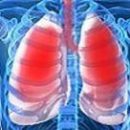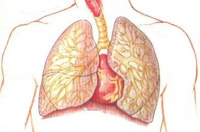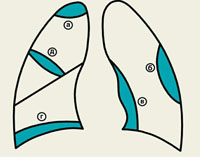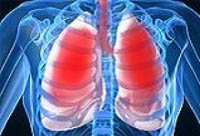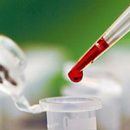What are the methods of treating sarcoidosis of respiratory organs? Answer to this question you will find in the article.
Content
Treatment of sarcoidosis corticosteroids
All methods of treating sarcoidosis
based on the suppression of inflammatory reactions and preventing
Fibrous transformation granuloma. Today the most effective
The treatment of sarcoidosis therapy is corticosteroids that
have a powerful anti-inflammatory effect, overwhelming
Immunoglobulins, interleukins and other inflammation mediators.
The question of the testimony to the beginning of corticosteroid therapy is not resolved
Definite. In accordance with one extreme point of view, the presence
active inflammatory process and the possibility of forming
irreversible fibrous changes in organs require treatment
Immediately after the diagnosis. On the other hand, high
The probability of spontaneous regression with complete resampling
changes and the likelihood of complications from treatment do
Inappropriate early start of treatment in all cases. Cause
difficulties in determining therapeutic tactics is that
most patients in identifying the disease can not be reliably
predict his further flow.
Absolute testimony for immediate start of treatment are
the presence of lesion of the heart and eye due to the risk of development of dangerous for
life of complications and loss of vision.
It is also advisable to appoint
Corticosteroids in cases:
- acute start of sarcoidosis with high activity
inflammatory process manifested by polyarthritis and noded
erythema;
- significant, progressive lesion of pulmonary fabric with pronounced disorders of the respiratory function;
- Combining Sarcoidosis of respiratory organs with any extrap
localizations when the probability of progressive or
recurrent flow;
- Sarcoidosis recurrences with severe clinical manifestations and functional disorders.
In other cases, especially with the primary identification of sarcoidosis,
The question of the need for treatment is solved after 3 - 6 months of observation
Patient.
Corticosteroid therapy is usually carried out for a long time: within 6 -
8 months. Short (3-month) treatment courses are not enough for
Achievements of the rescue, and the probability of relapse is essential
increases. The dose of corticosteroids used in sarcoidosis varies
from 20 to 80 mg of equivalent prednisolone per day. Optimal with a point
vision of the ratio of efficiency and side effects of treatment is
Initial daily dose 25 - 30 mg. After 40 - 60 days daily
reception of drugs in 70 - 80% of patients is determined by distinct
Positive dynamics expressed in clinical improvement and
Reduction of changes in lungs and vgl on radiographs. Frequency
Moderately pronounced side manifestations of corticosteroid therapy
usually does not exceed 15%. Intermitting (every other day) Reception 25 - 30 mg
Corticosteroids allows you to achieve improvement somewhat later - after 2 - 3 months, but the frequency and severity of side effects of treatment
decrease by 1.5 - 2 times.
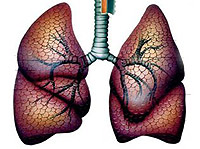
After registration positive
The effect of the started corticosteroid therapy is possible to transition from
daily reception of the drug on an intermitting, dose gradually
Reduce to complete cancellation and continue to monitor patients. It is advisable to use corticoserous drugs,
Possessing the best tolerance (methylprednisolone, triamxinolone,
Betamethasone). Corticosteroids are advisable to combine with drugs
potassium, if necessary, use known means for correction
Side manifestations of treatment.
Other treatments for sarcoidosis can be viewed as
Alternative or addition to basic therapy system
corticosteroids in cases where there are contraindications or
Restrictions for its application.
The results of use in sarcoidosis of inhalation
Corticosteroids (Becmetazone Dipropionate, Flunicolida, Flicazone)
Estimated ambiguously. Undoubted appropriate destination
local action drugs in cases of damage to the mucosa,
which are detected in 20% of patients. At the same time, the lack of system
actions avoiding many complications at the same time reduces
Therapeutic effect of topical steroids.
Santeroids are also used to treat sarcoidosis
Anti-inflammatory funds (delagil, placmenyl), antioxidants
(ALPHATICOPHOLOGOL, ASKORTUTIN, TIOSUL FAGE Sodium). Efficiency of this
treatment is significantly more modest results of system corticosteroid
Therapia.
Preventive course of anti-tuberculosis therapy (usually
Gink preparations) simultaneously with corticosteroids it is advisable
prescribe only sarcoidosis patients who have residual
Postatuberculosis changes.
Treatment of sarcoidosis by physiotherapeutic methods
In the treatment of patients with sarcoidosis, a series is successfully used
non-drug methods. Unloading and dietary therapy has
powerful immunosuppressive action, and also stimulates the function
adrenal glands.
According to M.M.Ilkovich and Sowa., Positive effect after 2 weeks.
Full starvation and subsequent weekly reducing period
It is observed in 30 - 80% of patients depending on the stage of the disease.
Effective physiotherapeutic method for sarcoidosis is
EFC-therapy. Course from 20 procedures for the effect of wavelength 5.6, 6.4 or
7.1 mm on the area of the fork gland allows to achieve improvement
active for the first time identified sarcoidosis or recurrence of the disease. More
Effectively combination of KVF-therapy with reduced doses (10 - 15
mg / day) corticosteroids.
Good results of treating patients with sarcoidosis gives
Plasmapheresis, the action of which is based on removal with plasma
Inflammatory mediators, immune complexes, improvement of microcirculation.
Plasmapheresis is shown in the insufficient basis effect
corticosteroid therapy or in cases of limited
conduct (for example, in patients with diabetes mellitus, severe arterial
Hypertension, ulcerative disease). Different modes have been proposed
Plasmalresa. Good results were obtained during the course of 3 - 4
Plasmapheresses of 700 - 800 ml with an interval of 5 - 7 days.
The effect of treatment with good tolerance is significantly
Increases with a combination of plasmapheresis with small doses (10 - 15
mg / day) corticosteroids.
Treatment and forecasts
The stay of patients with sarcoidosis in the hospital is limited to their term
Surveys to establish a diagnosis and evaluation of tolerance
prescribed treatment (usually from 1 to 1.5 months). Well
unloading and dietary therapy and invasive treatment methods also
must be carried out in the clinic. Treatment is continued in outpatient
conditions. With satisfactory well-being of patients and good
Patient treatment tolerance is not contraindicated by labor activity.
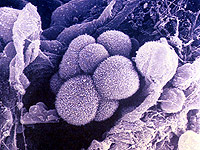
Sarcoidosis in most cases favorable: in 20%
Patients occurs spontaneous regression, half after the course
treatment is not observed relapses. The recurrent course is noted
25%, and progressive - only 5% of patients.
Over the years, survey and monitor patients
Sarcoidosis in our country was carried out mainly on the basis
Anti-tuberculosis institutions. In accordance with the activity
Diseases of patients with sarcoidosis refer to one of the three subgroups VIII
Groups of dispensary tuning of anti-tuberculous dispensaries. Subgroup
VIII - A COMPLETE PATIENTS WITH THE FORTORE IDENTIFICATED ACTIVE SARKOID. Them
Examination, including medical examination, radiography, clinical
blood test and spirography, repeat every 3 months during the first
years and every 6 months during the second year of observation. In the subgroup
VIII-B include patients with relapses and progressive current
Sarcoidosis.
Patients of this subgroup receiving corticosteroid therapy,
Watch back quarterly. Patients VIII-in subgroups (with inactive
Sarcoidosis) observe 1 time per year. In the absence of relapses on
for 2 years they can be discontinued, however
Sarcoidosis recurrences after many years of remission makes it appropriate
longer observation of patients in the subgroup of VIII-in. Patients S
Overlooking localizations of sarcoidosis also need observing
specialists of the relevant profile.
unidentified and many unsolved questions require further
Study of this disease, diagnosis and treatment of sarcoidosis
are well designed to provide patients
Satisfactory level of quality of life.

